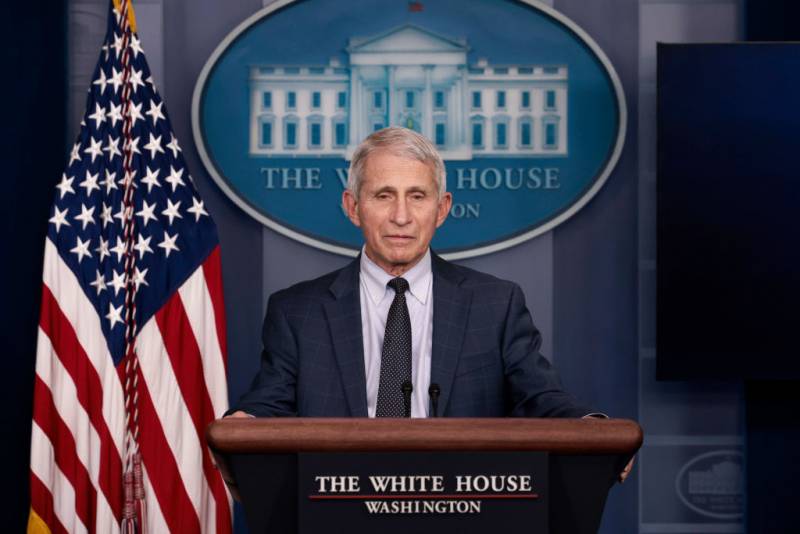To make some sense of the latest developments in this pandemic that just won't seem to quit, and get a general idea of where things currently stand on the medical front, KQED Forum's Mina Kim spoke earlier this week with Dr. Anthony Fauci, President Biden's chief medical adviser and the director of the National Institute of Allergy and Infectious Diseases.
This interview has been edited for length and clarity.
Mina Kim: Why don't you think we need an omicron-specific vaccine?
Dr. Anthony Fauci: When you're talking about infection, a two-dose mRNA vaccine has a rather diminished efficacy in preventing infection, which, when you're talking about severe disease, it goes up to about 70% against hospitalization. But when you get boosted, it goes up even further, closer to 90%.
Right now, our current vaccines, which are directed against the original ancestral virus, appear to do quite well against any of the variants that we faced — the alpha, the beta and then the formidable delta variant that's the current dominant variant in the United States. At this point, unless things change, which I really don't think they will, if we get our population boosted, even with omicron on the horizon, which will likely be taking over in dominance if it acts in the United States anything like it's acting in South Africa and in the U.K., we should have a predominance of omicron here. If we get boosted, I believe we'll be able to get through this OK.
But we've got to get people boosted. We have 60 million people in this country who are unvaccinated, who are eligible to be vaccinated. And even though we've given a booster to about 40 million people, there are still close to 100 million people who should be getting boosted that we need to get boosted in the next few weeks to a month as we get further into the winter.
So how do we solve that quickly?
Well, I think we've got to get the information out to the American public, and that's the reason why we're out there all the time in real time, talking about this. I'm going to be talking about it [Wednesday] at the White House press briefing. We have to keep bringing home the message to the American people.
Unfortunately, as we all know, sadly, we have a lot of resistance to vaccination in this country. I have 60 million people who are eligible for vaccination who aren't being vaccinated. We've got to get them to understand why it's important for their own health, for their family and for their communal responsibility to keep this outbreak under control. We have to just keep trying.
How much of a game changer is the news from Pfizer this week that its COVID pill will protect against severe disease, even from omicron? That it reduces the risk of hospitalization and death by 89% if given within three days of onset of symptoms?
Well, that's very good news. I mean, there's no doubt about that. It's an orally administered tablet, which is really important because you want to have something that's easily distributed and administered to people. And the data are very strong. I went over the data personally with the chief scientist of Pfizer just early this morning before they made the announcement. And the data look very strong. Just as you say, it's close to 90% effective. And in the study, there were no deaths in the treatment group and several deaths in the placebo group.
We've got to get it now to get an emergency-use authorization from the FDA and then get enough of it produced so that it could be widely available not only in the United States, but globally.
Is it time to double down on treatments, given the fact that vaccines have not been as effective as we hoped because of the slow uptake you alluded to earlier?
Vaccines are effective, to be sure, but you're right that as a community, we never want treatment to be a substitute for vaccination. I think we need to make that clear so that people don't get the impression that, now that we have treatments that appear to be quite favorable in preventing severe disease, that you can forget about vaccination. But having said that, it is very, very important that we have not only this product, which looks very favorable for the reasons you just mentioned. But we need to continue to make both screening products, as well as developing and discovering new products. We have a rather substantial program here at NIH doing just that — because of the importance of developing therapeutics as well as vaccines.
The studies out of the U.K. and South Africa also highlight the incredible transmissibility of omicron. California's seven-day average case rate has increased by 47% and hospitalizations by 14%. State officials are saying that our current hospital census has us at or over capacity in many regions of the state. How concerned should we be about our health care delivery system being impacted by omicron?
